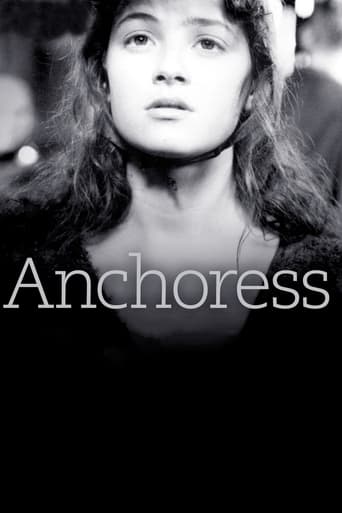ye_river_xiv
A while back, there was a glowing review about this movie, saying that the choice of a soundtrack was brilliant, and every time whoever wrote the review watched the movie, he, or she learned something new.Well, I'll admit that it does have a sort of addicting pull about it, but I haven't learned anything new really. Maybe I'm just stupid, but I think the real reason is that the movie is not as great as that particular post made it out to be.I like the film, but mainly, I like it for it's peculiar sexual themes. The acting is pretty good, but without much soundtrack, there's a lot of dead air where you expect something fantastically important to happen... Then the actors do something totally inexplicable, like move a bunch of rocks, or apples, or kiss a statue.All said, it looks more like a work in progress than a movie, but there's something about that unfinished quality that really catches my attention, and sucks me in, whether I like it or not.
atandt
shot in B&W, but with a glaring brightness at times, "Anchoress" unravels a strange slice of life of a young woman who feels called to live in a cell of a church within sight of a statue of the Virgin. the Cult of Mary was strong in the medieval times (and i suppose it still continues today), and this and other bits of the medieval life bring some historical credibility to the screen.but far from being a sort of documentary, there are surreal and mystical elements too, which i think should serve to appeal to a modern audience. this film has what i would consider an art-house feel, but it also bears a purity to the viewer, of a simple age where belief meant everything and proof is almost heretical.whether a character has truly experienced a vision, or is a witch, or is holy,is never justly determined by the characters in their peasant lives, but is merely enforced by entrenched codes of social, religious, and other laws. to watch christine encounter each of these, to watch her life and her family be affected by the strangeness of the story and the rules of the age is captivating to behold.i found this film to be beautiful, bizarre, with a wonderful cast, as faithful as possible to the historically-known experiences of folk in European middle ages (well, aside from the imaginative bits), comical, tragic, but entirely fascinating.
artaxerxes1
This film must be watched with a quiet spirit and a willingness to let go of well-organized, linear plot development. Those familiar with The Book of Margery Kempe will appreciate the spiritual struggle Anchoress represents as well as the more "feminine" approach to plot. The cinematography is exquisite as well as the acting.
elihu-2
Exquisitely spare cinematography and striking visuals which ape Andrei Tarkovsky's ANDREI RUBLEV cannot save this medieval tale from being a disappointment. English director Chris Newby's first feature is a dismally muddled array of images of life in a remote 14th-century village.
Talented young thespian Natalie Morse (of Peter GreenawayÕs DROWNING BY NUMBERS) nevertheless succeeds in her tricky role as Christine Carpenter, a girl touched by transcendent grace, who succumbs to the misguided religious authority of the times and becomes an anchoress, a virgin who is walled up in a chamber in the church, to serve as a moral beacon for the villagers.This makes the snickering local priest (Christopher Eccleston) overjoyed, as he takes her away from the Reeve (Eugene Bervoets, of the original French-Dutch production of THE VANISHING), the local military power monger. She is periodically visited by her surly pagan mother (English new-wave personality Toyah Wilcox) and pretty much ignored by her father, who is played by Pete Postlethwaite.The only real power in the film is in the scenes with Christine alone, discovering her sensuality. The rest of the film is a mess, partly due to the confusing, overly obscure script, which hardly lets the audience know what's going on without benefit of reading a plot synopsis beforehand. It purports to observe the female condition through the ages, but ends up being mostly uninsightful and boring.



